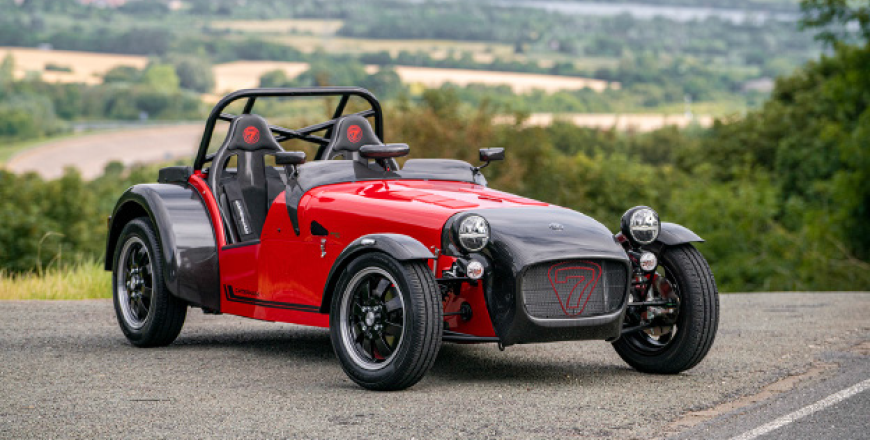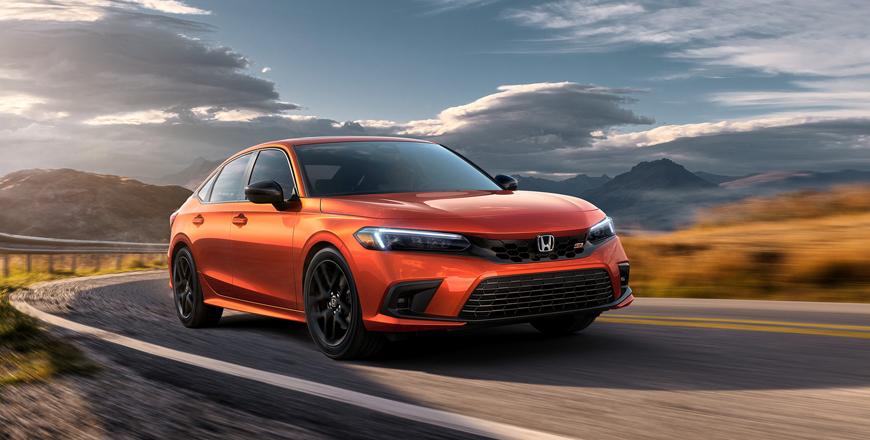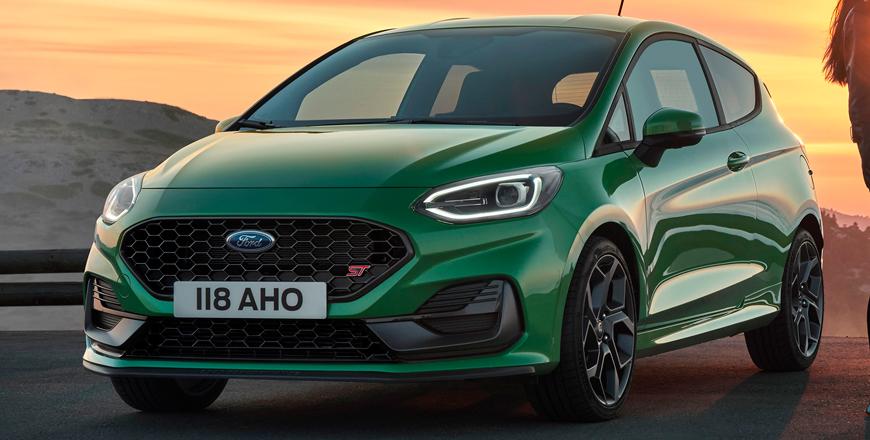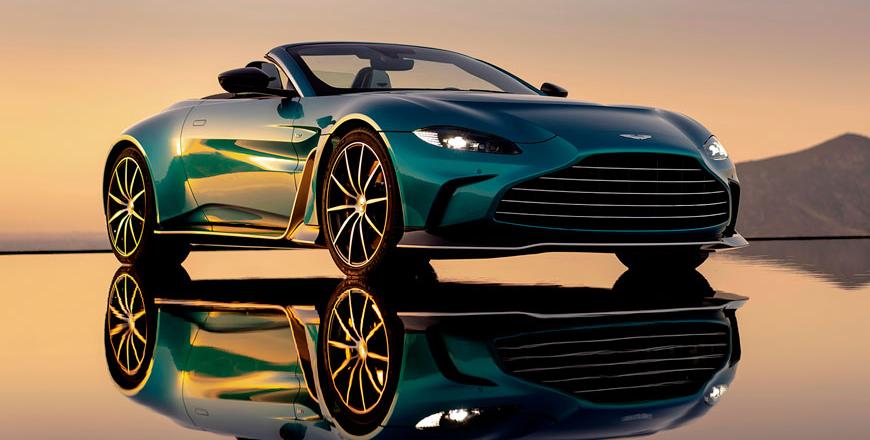You are here
Featherweight fun: Caterham Seven 170, Daihatsu Copen and Honda S660
By Ghaith Madadha - Jun 27,2023 - Last updated at Jun 27,2023

As the trend for more complicated and ever heavier electric and hybrid cars and high-riding crossovers and SUVs grows, small, lithe and light sports cars are in turn sadly fast becoming a rare commodity. An uncomplicated recipe, the small sports car’s lightweight ethos is one that requires ever lighter parts, materials and engines to deliver efficiency, affordability, manoeuvrability, performance, driver engagement and a fun factor that cannot be replicated by piling on more and more power, technology and equipment.
Caterham Seven 170
An ultra pared down and back-to-basics addition to the already lightweight and minimalist Seven range utilising a tiny and modern Suzuki-sourced engine, Caterham’s entry-level Seven first arrived in 2014 and was revised as the 170 in 2021, to reflect a mild power increase. Offered in road-biased S and track-oriented R variants, the svelte, long-nosed and bug-eyed Seven 170 might likely spawn classically styled editions, harking back to the original 1957 Lotus Seven.
A car that perfectly demonstrates that a fast and fun sports car needn’t be overwrought and over complicated, the Seven 160 doesn’t have or require power-steering or power-brakes and uses slim tyres, solid disc brakes and live axle rear suspension, rather than more sophisticated Seven versions’ De-Dion set-up. It nevertheless delivers superb handling characteristics, with double wishbone front suspension and a classic front-mid engine, rear drive layout providing perfect within-wheelbase weighting and balance.
Promising nimble agility and an engagingly connected and viscerally rewarding driving experience, the “Kei”-compliant Seven 170 is significantly lighter than other small sport cars on this list, with base variants weighing just 440kg. Also more powerful, its turbocharged 660cc 3-cylinder engine develops 84BHP at a peaky 6,500rpm and 86lb/ft at 4,500rpm in a more linear and sporting style of delivery, for brisk 6.9-second 0-100km/h acceleration and a 170km/h top speed.
Specifications
Engine: 0.7-litre, in-line turbocharged 3-cylinders
Gearbox: 5-speed manual, rear-wheel-drive
Power, BHP (PS) [kW]: 84 (85) [62.5] @6,500rpm
Torque, lb/ft (Nm): 86 (116) @4,500rpm
0-100km/h: 6.9-seconds
Top speed: 170km/h
Length: 3,180mm
Width: 1,470mm
Height: 1,090mm
Wheelbase: 2,225mm
Weight: 440kg
Suspension, F/R: Double wishbones/live axle
Tyres: 155/65R14
Daihatsu Copen
First launched in 2002 as a tiny Japanese market “Kei” segment sports car, the S660 featured “cute” and rounded styling reminiscent of the more athletic Audi TT and much larger Lexus SC430, and a then fashionable and new folding metal roof mechanism. The Daihatsu Copen soon spawned export variants in its first iteration, while a little changed in dimensions, performance or concept, the second-generation follow-up arrived 2012 with a more contemporary design.
Despite its disarming design, convenient roof system and un-sporting optional continuously variable transmission, the original Copen nevertheless promised plenty of hot hatch-like fun and agile go-cart style driving characteristics. With its low weight, eager front-drive platform, big footprint within tiny dimensions and standard 5-speed manual transmission, the Copen could be as much of nimble corner-carving sports car as it was a manoeuvrable, convenient and efficient low cost fun city car.
Sharper, and more contemporarily aggressive with its jutting lines and creases, big grille and slip headlights, the second generation Copen, however, remains in production, and is also offered in more rounded, retro variants. Powered by a small transverse turbocharged 660cc 3-cylinder engine driving the front wheels, the Copen produces 63BHP at 6,400rpm and 68lb/ft torque at 3,200rpm, and is estimated to carry its 850kg mass through 0-100km/h in 11.5-seconds and onto 170km/h.
Specifications
Engine: 0.7-litre, transverse turbocharged 3-cylinders
Gearbox: 5-speed automatic, front-wheel-drive
Power, BHP (PS) [kW]: 63 (64) [47] @6,400rpm
Torque, lb/ft (Nm): 68 (92) @3,200rpm
0-100km/h: 11.5-seconds (estimate)
Top speed: 170km/h (estimate)
Length: 3,395mm
Width: 1,475mm
Height: 1,280mm
Wheelbase: 2,230mm
Weight: 850kg
Tyres: 165/50R16
Honda S660
A Japanese market gem that most of the world lost out on, the Honda S660 was probably the most interesting and “pure” sport model since the demise of the high-revving S2000. Harking back to Honda’s small 1960s “S” series sports cars, the S660 was launched in 2015 as simple but modern miniature mid-engine two-seat targa-top sports car adhering to Japan’s low tax ‘Kei’ car size, weight and displacement restrictions.
The antithesis of the much heavier and more complex Honda NSX hybrid super sports car launched the following year, the diminutive and uncomplicated soft-top S660 shares a similar design ethos in its big grille, slim headlights and wide, low stance. Weighing just 830kg, with rear-centre weight bias, the S660, however, promises superbly agile handling, balance, adjustability and razor sharp reflexes for turning into and negotiating sharp, narrow and successive corners.
Powered by a tiny transversely-mounted turbocharged 660cc 3-cylinder engine, the S660 develops 63BHP at 6,000rpm and 77lb/ft torque at 2,600rpm to power is larger rear wheels. Driven through a standard 6-speed manual gearbox for more driver engagement and authenticity, or an optional automatic continuously variable transmission for greater convenience and in-town ease, the S660 is estimated to be capable of 0-100km/h in 11-seconds and an unrestricted top speed of 170km/h.
Specifications
Engine: 0.7-litre, mid-mounted turbocharged 3-cylinders
Gearbox: 6-speed manual, rear-wheel-drive
Power, BHP (PS) [kW]: 63 (64) [47] @6,000rpm
Torque, lb/ft (Nm): 77 (104) @2,600rpm
0-100km/h: 11-seconds (estimate)
Top speed: 170km/h (estimate, unrestricted)
Wheelbase: 2,285mm
Weight: 830kg
Tyres, F/R: 165/55R15/195/45R16
Related Articles
A common feature of most European and Japanese manufacturers’ model lines until not too long ago, the small sports saloon was a mildly
A practical, fun, fast and usually affordable mode of transport that had its origin in the 1970s Volkswagen Golf GTI and Renault 5 Alpine, t
Perhaps the most evocative of car segments, the classic front-engine, rear-drive roadster best captures the fun factor inherent to the act o

Opinion
Apr 09, 2025
Apr 08, 2025
- Popular
- Rated
- Commented
Apr 08, 2025
Apr 09, 2025
Newsletter
Get top stories and blog posts emailed to you each day.

















